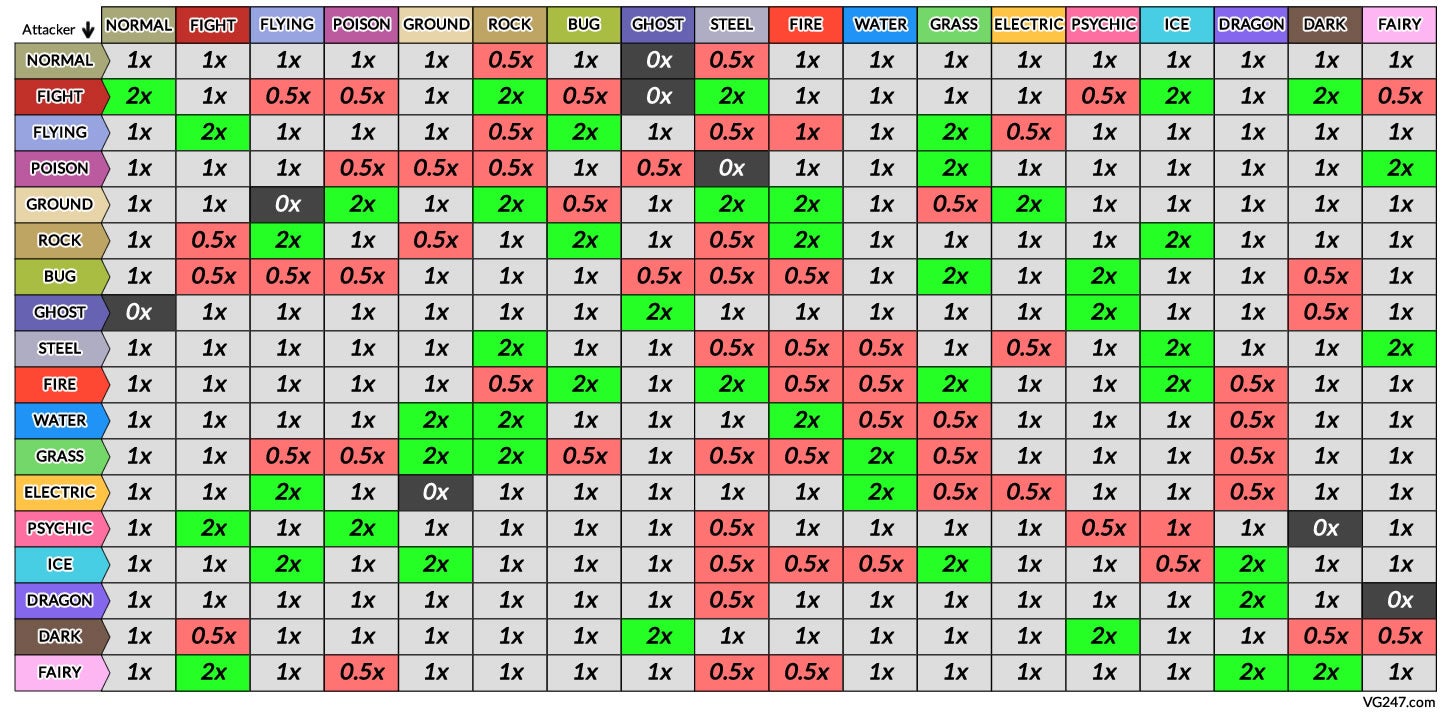Pokemon Types have been a Pokemon staple since its nineties debut, though the number of types has grown significantly over the years. A Pokemon’s type, which is based on its design and natural habitat, is vital. It somewhat determines the moves that Pokemon can use, but also more crucially the different attacks and moves that each individual Pokemon can find itself vulnerable to be on the receiving end of. Pokemon can be single-type or dual-type, with the strengths and weaknesses of both their types - but thankfully there’s no such thing as triple type Pokemon. Even so, with single type and double type critters, there are a lot of potential combinations - hundreds, in fact. Each has its own strengths and weaknesses to consider. Plus, in Scarlet & Violet, players can use the new Terastalize feature to temporarily change a Pokemon’s type. That’s a lot to think about! Types interact in a manner that adds up as common sense, but it still sometimes isn’t all that obvious. The perfect example are the starter Pokemon, which are fire, water and grass:
If you use a Fire-type move on a Grass-type Pokemon, for instance, you’ll be greeted with the classic “It’s super-effective” text - and deal more damage as a result. If you use a water-type move on an grass-type Pokemon, it’ll unsurprisingly not be very effective - doing reduced damage. In a worse-case scenario, a move might not do anything at all - which is what happens when a Pokemon is Immune to a type.
It’s not all this simple, however - which is where we come in. This Pokemon Scarlet & Violet Type Chart reveals the strengths and weaknesses in an easy-to-digest way - either in an image, or a nice, old-fashioned bullet-point list. Either will help you to figure out strengths and weaknesses at a glance.
Pokemon Scarlet & Violet Type Chart: strengths, weaknesses and resistances
There are 18 Pokemon types in all: Normal, Fire, Water, Grass, Flying, Fighting, Poison, Electric, Ground, Rock, Psychic, Ice, Bug, Ghost, Steel, Dragon, Dark and Fairy. Here’s a full type chart showing how they all interact. Here’s how to use the chart:
If you’re attacking, work from your type on the left to the enemy type on the top. If defending, do the opposite - find your type on the top and work left to the attacker list. A 1x indicates an attack will do standard damage based on your Pokemon and the move’s stats. A 2x indicates a Super-effective move - it’ll do double the normal amount of damage. A 0.5 indicates a Not very effective move - it’ll do half the normal amount of damage. A 0 indicates a Not effective move, which won’t do any damage at all.
If you prefer your strengths and weaknesses to be written out a little more in black-and-white, here they are by Pokemon type. In this table…
The Super Effective Vs. column shows what the type on the left is effective against in battle. The Not Very Effective Vs. column reveals the types the attacking type (on the left) will do less damage to. Immunities are also listed here - they’re always last, and are denoted by brackets. The Resist Damage column shows you what moves won’t be very effective against the Pokemon type on the left when it is defending. The Weak Vs. column reveals what types the type listed on the left will suffer super effective moves when attacked by their moves.
